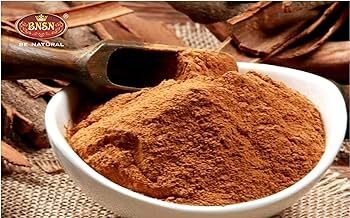Blog
How effective is Arjuna bark for reducing high blood pressure?

Arjuna bark, derived from the Terminalia arjuna tree native to India, has gained attention for its potential health benefits, particularly in managing cardiovascular health, including high blood pressure. This article explores the effectiveness of Arjuna bark in reducing high blood pressure, backed by scientific evidence and traditional wisdom.
Understanding Arjuna Bark
Arjuna bark has been a staple in traditional Ayurvedic medicine for centuries, valued for its cardio-protective properties. The bark contains various bioactive compounds such as flavonoids, tannins, saponins, and minerals like calcium and magnesium, which contribute to its therapeutic effects.
Mechanisms of Action
- Improves Heart Function: Arjuna bark is believed to strengthen heart muscles, improving their ability to pump blood effectively. It also supports the dilation of blood vessels, which can help reduce blood pressure.
- Antioxidant Properties: The presence of flavonoids and other antioxidants in Arjuna bark helps in reducing oxidative stress, which is a significant contributor to cardiovascular diseases, including hypertension.
- Lipid-Lowering Effects: Studies suggest that Arjuna bark extracts may lower cholesterol levels, which in turn can support healthier blood pressure levels.
Scientific Evidence
Numerous studies have investigated the effects of Arjuna bark on blood pressure:
- Clinical Trials: A study published in the Journal of Ethnopharmacology examined the effects of Arjuna bark extract on patients with hypertension. The results indicated a significant reduction in both systolic and diastolic blood pressure levels after regular supplementation.
- Animal Studies: Animal models have also provided insights into Arjuna bark’s mechanisms. Research on hypertensive rats showed improvements in heart function and blood vessel elasticity after receiving Arjuna bark extracts.
- Mechanistic Studies: Researchers have identified that Arjuna bark may act by inhibiting angiotensin-converting enzyme (ACE), similar to some conventional blood pressure medications, thereby regulating blood pressure levels.
Traditional Use and Safety
In Ayurvedic medicine, Arjuna bark is regarded as safe for most individuals when consumed in appropriate doses. However, as with any supplement, it’s essential to consult with a healthcare provider, especially if you have existing medical conditions or are taking medications.
How to Use Arjuna Bark
Arjuna bark is typically consumed as an herbal supplement, available in various forms such as capsules, powders, or liquid extracts. The dosage can vary depending on the specific product and individual health needs, so following recommended guidelines is crucial.

Conclusion
Arjuna bark shows promise as a natural remedy for reducing high blood pressure, supported by both traditional wisdom and scientific research. Its ability to improve heart function, lower oxidative stress, and potentially regulate cholesterol levels makes it a valuable option for those looking to support cardiovascular health. While more extensive clinical studies are warranted to further validate its efficacy and safety, current evidence suggests that Arjuna bark can be a beneficial addition to a holistic approach to managing hypertension.
Incorporating Arjuna bark into a balanced lifestyle that includes a healthy diet, regular exercise, and stress management techniques may provide comprehensive support for maintaining healthy blood pressure levels. Always consult with a healthcare professional before starting any new supplement regimen, particularly if you have pre-existing health conditions or are taking medications.
